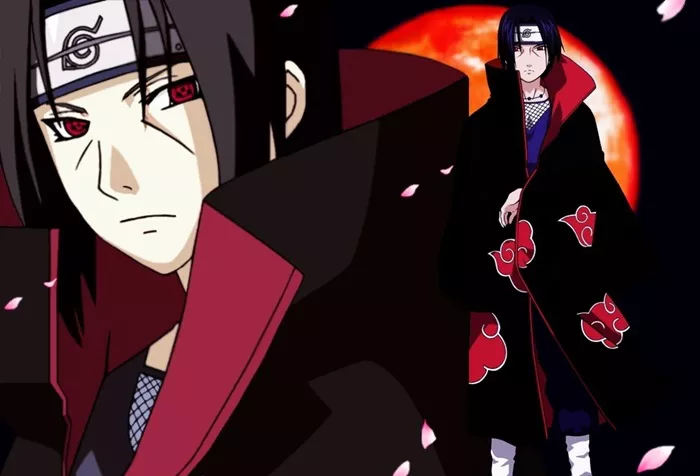Itachi Uchiha, a character from the popular anime and manga series “Naruto,” has captivated fans worldwide with his complex personality, tragic backstory, and profound impact on the story’s narrative. Loved by many and often considered one of the most compelling characters in the series, Itachi’s popularity raises questions about what makes him so beloved. This article delves deep into the reasons why people love Itachi Uchiha, exploring his character traits, backstory, moral complexities, and cultural influence.
Itachi Uchiha
Itachi Uchiha is introduced early in the “Naruto” series as a prodigious ninja from the Uchiha clan, known for his exceptional skills and intellect. Initially portrayed as a villainous figure who massacred his entire clan, including his parents, Itachi’s true motives and character unfold gradually throughout the series.
Character Traits and Persona
Itachi is characterized by several defining traits that contribute to his allure:
Genius Intellect: From a young age, Itachi demonstrated exceptional intelligence and strategic acumen, making him a formidable ninja and tactician.
Mysterious Aura: Itachi’s enigmatic nature and secretive demeanor add layers to his character, sparking curiosity among fans.
Cold and Calculating: Despite his calm and composed exterior, Itachi is depicted as ruthless when necessary, embodying the complexities of a skilled shinobi.
Backstory and Tragic History
Itachi’s backstory is pivotal to understanding his character and motivations:
Uchiha Clan Massacre: Itachi’s role in the massacre of the Uchiha clan is initially presented as an act of betrayal. However, it is later revealed that Itachi carried out the massacre under orders from Konoha leadership to prevent a coup d’état that could lead to war.
Protective Love: Itachi’s actions were driven by a desire to protect his younger brother, Sasuke, whom he deeply cared for despite their strained relationship.
Sibling Dynamics and Emotional Conflict
The relationship between Itachi and Sasuke is central to the emotional core of the series:
Brotherly Bond: Despite the tragic events and misunderstandings, Itachi’s love for Sasuke is a recurring theme. His sacrifices and decisions are often made with Sasuke’s well-being in mind.
Rivalry and Redemption: Sasuke’s quest for vengeance against Itachi drives much of his character development. Itachi’s eventual revelation of his true intentions forces Sasuke to confront his feelings and seek his own path.
See Also: CAN NARUTO UZUMAKI FLY?
Philosophy and Moral Ambiguity
Itachi’s character raises philosophical questions about sacrifice, duty, and the greater good:
The Ends Justify the Means: Itachi’s willingness to bear the burden of hatred and guilt for the sake of peace and stability reflects a utilitarian approach to morality.
Personal Sacrifice: Itachi’s self-sacrifice and willingness to be vilified by others for the sake of protecting his village and loved ones exemplify his sense of duty and honor.
Cultural Impact and Fan Adoration
Itachi Uchiha’s character has left a lasting impression on fans and popular culture:
Iconic Design: Itachi’s distinctive appearance, including his Sharingan eyes and long black hair, has become iconic among anime enthusiasts.
Cosplay and Fan Art: Itachi’s popularity is evident in the widespread cosplay and fan art dedicated to his character, showcasing the admiration and creativity of fans worldwide.
Complexity and Redemption Arc
Itachi’s character development is marked by layers of complexity and a redemptive arc:
Revelations and Realizations: As the series progresses, Itachi’s true motives and sacrifices are gradually revealed, challenging initial perceptions of his character.
Posthumous Influence: Even after his death, Itachi’s legacy continues to influence other characters and shape the course of the story, reinforcing his significance within the narrative.
Psychological Depth and Relatability
Itachi’s psychological depth resonates with fans, exploring themes of identity, duty, and the consequences of one’s actions:
Internal Struggles: Itachi’s internal conflicts and emotional turmoil humanize his character, making him relatable despite his extraordinary abilities.
Tragic Hero: Itachi’s portrayal as a tragic hero who carries the weight of his decisions and sacrifices evokes empathy and admiration from audiences.
Legacy and Enduring Popularity
Itachi Uchiha’s legacy extends beyond the “Naruto” series, impacting discussions on morality, sacrifice, and the nature of heroism:
Philosophical Debates: Discussions among fans and scholars often delve into the ethical dilemmas presented by Itachi’s actions and motivations.
Literary Analysis: Itachi’s character is subject to literary analysis and interpretation, exploring his role as both antagonist and anti-hero within the narrative framework.
Conclusion: The Allure of Itachi Uchiha
In conclusion, Itachi Uchiha’s enduring popularity stems from a combination of his complex character traits, tragic backstory, moral complexities, and profound impact on the narrative of “Naruto.” Loved by fans for his intelligence, sacrifice, and emotional depth, Itachi transcends the typical portrayal of antagonists, evolving into a multi-dimensional figure whose legacy continues to resonate long after the series’ conclusion. As fans revisit his story and contemplate the themes he embodies, Itachi Uchiha remains a testament to the power of storytelling and the lasting impression of well-crafted characters in popular culture.

